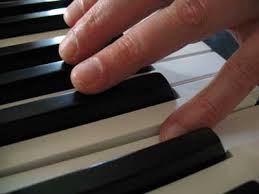
I’ve seen some great posts on echolalia around the blogosphere lately. One point in particular that I keep thinking about was from Maddy’s post, in which she mentioned that someone had found her blog by searching “methods to stop echolalia.” Yes, it can be annoying sometimes, and maybe completely random, but hey! Your child is talking. Do you get it? Why would you want to stop that?
I have written about Nigel’s language development through various stages of echolalia. Yes, there have been times in recent years when I have prompted him to use his own words instead of a memorized phrase to communicate, but that’s because I know that he now has the ability to do that, to use his own words. Echolalia is comforting to him, however, and he reverts to that in high-stress situations. And in those situations, it’s more important to help him to calm down than to stop the echolalia. I don’t tell him “You can use your own words” when he’s on the verge of a meltdown. But sometimes, when he’s calm and comfortable, I encourage him to rephrase whatever he’s saying. I’ll gently suggest, “You don’t need to say things from videos right now. Try to tell me in your own words.” And he does now, because he’s able to. But I would never want to take that part of him away completely. He’s said some really funny things because of his delayed echolalia (scripting)! It’s how he learned to talk, and for that reason, I’m sentimental about it.
Why on earth, when a brave child is venturing into the speaking realm, would someone want to stop echolalia? Let them do it! Let them practice! When someone is learning to play the piano, there is a lot of bothersome plinking and plunking going on, usually on a daily basis. But after a long time of that, a song emerges, sometimes one that they have composed themselves. And there will still be plenty more plunking and plinking as the years go by. But also – we hope – more songs.
